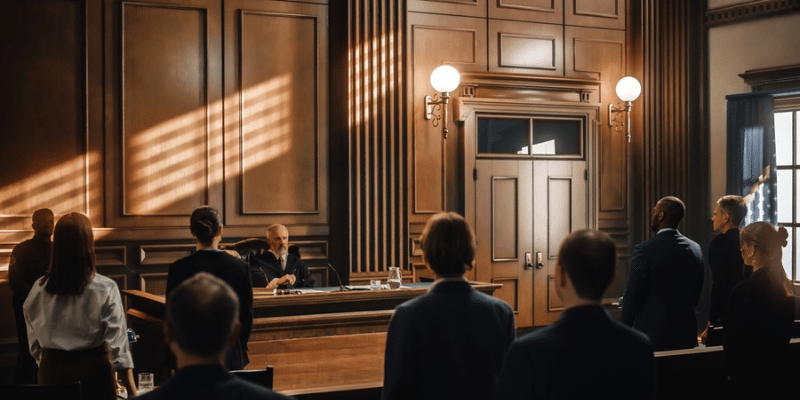
In Abanda Bella v Barclays Execution Services Ltd & Ors, the Claimant made two applications for permission to record a three day hearing. He referenced the fact that he was disabled (anxiety, depression, PTSD, paranoia, psychosis and exacerbated sleep disturbance) and said that the ability to record the hearing would reduce the cognitive load on him and allow him to participate fully in the hearing.
The application was supported by a report from his psychotherapist. The report stated that the Claimant would be overwhelmed by having to take notes and a recording would allow him to reflect and make informed decisions. The Claimant had previously been allowed to record a hearing but had also attended hearings that had not been recorded.
The Employment Tribunal (ET) rejected the application without referring to the supporting evidence. The decision was based on his conduct in the proceedings and his ability to participate in previous hearings without the need for a recording. The Claimant sought a reconsideration and referred expressly to his psychotherapist’s report. The ET refused to alter its decision and took the view that since there would be no witness evidence at the hearing the Claimant would only need to make brief notes. The ET also referenced the Claimant’s conduct and the inconsistencies in his evidence relating to his ability to attend remote hearings. As an alternative, the ET offered that it would record the hearing.
The Claimant appealed to the Employment Appeal Tribunal (EAT) on the basis that the ET had failed to apply the principles set out in Heal v Chancellor and Scholars of the University of Oxford & Ors, that it had been too dismissive of the medical evidence and had erroneously substituted its own view of the impact of the proceedings on his health without explaining why the psychotherapist’s evidence had been rejected.
The EAT upheld the Claimant’s appeal but noted that the initial application was unsupported by any evidence and contained only the Claimant’s view on his ability to conduct the hearing. As at the time of the reconsideration application there was more evidence available to the Tribunal. The EAT criticised the Employment Tribunals for declining the reconsideration request and being too dismissive of the psychotherapy evidence. The alternative suggestion of the Tribunal recording the hearing would not provide any assistance as the Claimant could not access the recording during breaks to reflect.
The EAT noted that the use of recording devices had been previously considered by the EAT in Heal and factors had been set out that should have been taken into account. Permission to record would have alleviated the disadvantage relied upon by the Claimant where he was unable to write and participate at the same time. The ET’s proposed alternatives (the ET recording or the Claimant taking a note) would not have had the requisite effect. There was also no evidence that the recordings would be misused, as previous recordings had been treated correctly.
The EAT’s view was that permission to record was a reasonable adjustment that should have been made and the tribunal’s decision to refuse it was unlawful.
This case emphasises the importance of ensuring that applications for reasonable adjustments in tribunal proceedings are supported by medical evidence. Practitioners should ensuring that clients are asked whether any adjustments are required well in advance so that an application with evidence can be made.
This blog was written by Elizabeth McGlone, Partner at didlaw.
